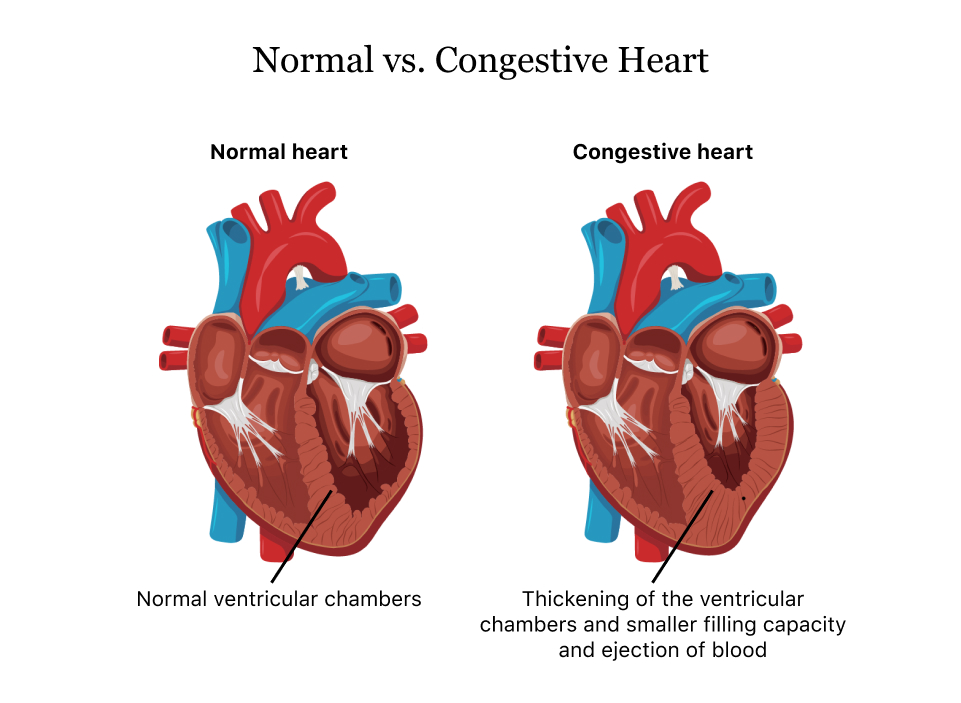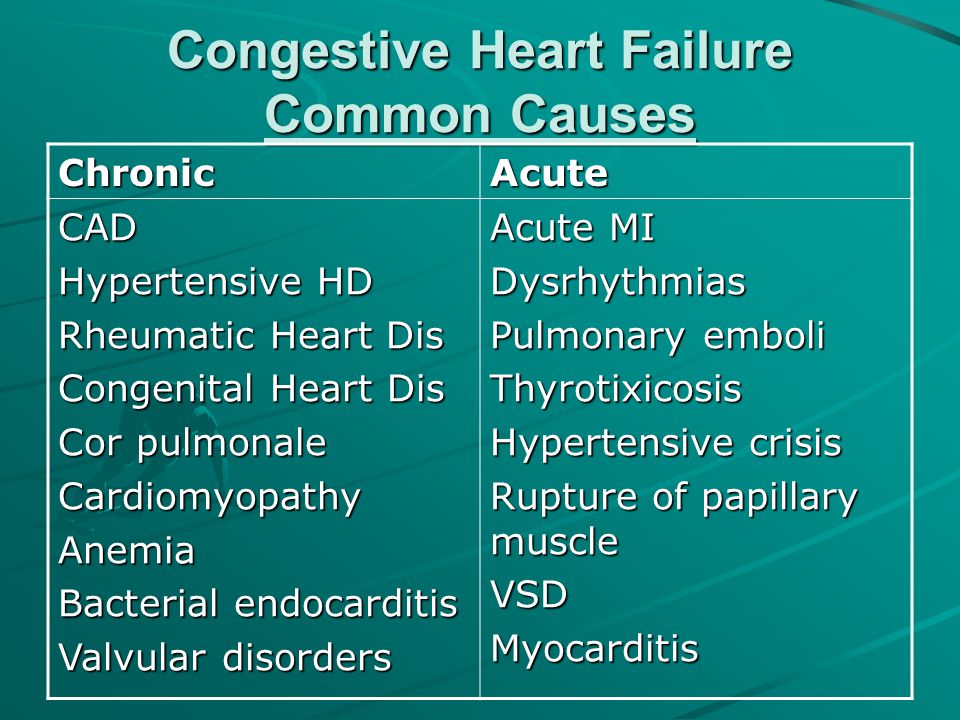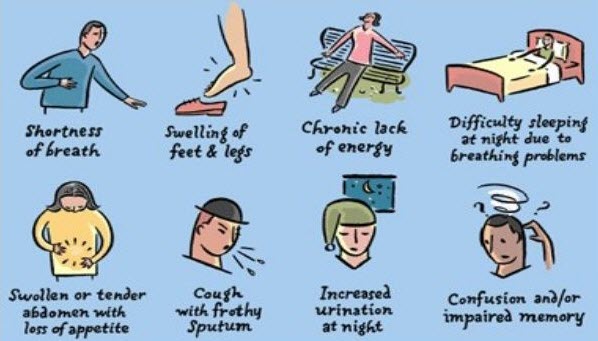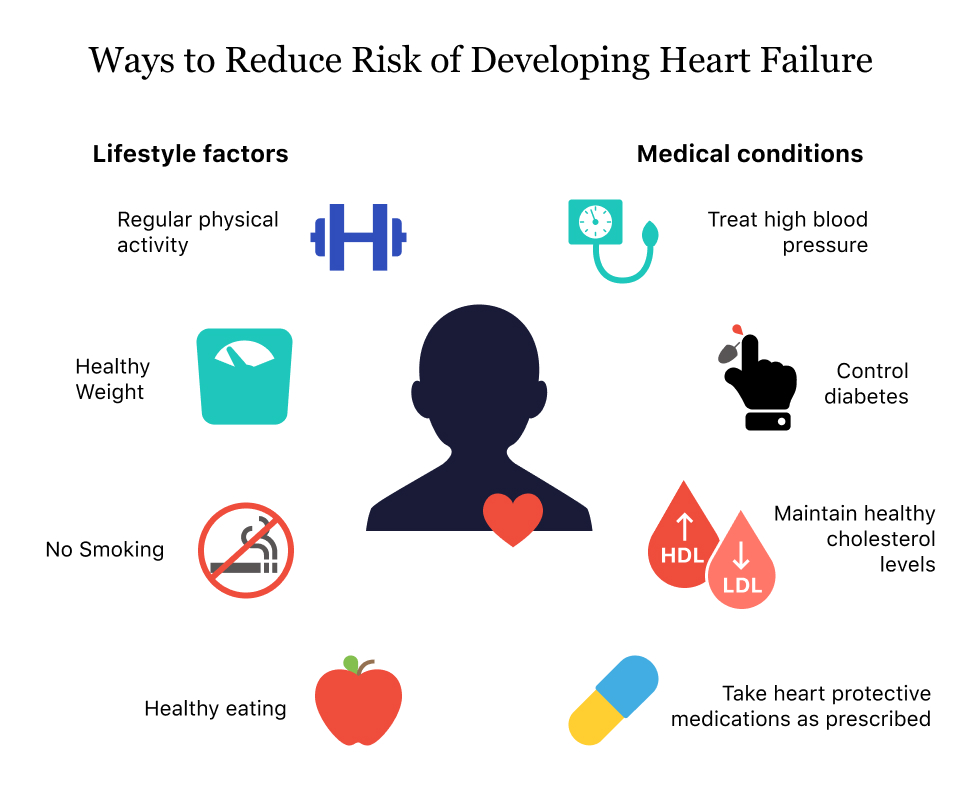The term “heart failure” makes it sound just like the heart isn't any longer acting at all and there’s nothing that may be done. Actually, heart disease means the heart isn’t pumping as well as it should be. congestive heart disease may be a type of heart disease that needs seeking timely medical attention, though typically the two terms are used interchangeably.

Your body depends on the heart’s pumping action to deliver oxygen- and nutrient-rich blood to the body’s cells. once the cells are nourished properly, the body will perform commonly. With heart disease, the weakened heart can’t offer the cells with enough blood. This leads to fatigue and shortness of breath and a few individuals have coughing. Everyday activities like walking, rising stairs or carrying groceries will become terribly tough.
How does a heart work?
The normal healthy heart is a sturdy, muscular pump a bit larger than a fist. It pumps blood incessantly through the vascular system. The heart has four chambers, 2 on the right and 2 on the left:
Two higher chambers are known as atria (one is named an atrium)
Two lower chambers are known as ventricles
The right atrium takes in oxygen-depleted blood from the remainder of the body and sends it through the right ventricle wherever the blood becomes oxygenated within the lungs. Oxygen-rich blood travels from the lungs to the left atrium, then on to the left ventricle, that pumps it to the remainder of the body.

The heart pumps blood to the lungs and to all the body’s tissues through a sequence of extremely organized contractions of the four chambers. For the heart to operate properly, the four chambers beat in drill beat in an organized method.
Types of Congestive heart failure(CHF)-
Congestive heart failure is a process where the body accumulates too much fluid. There are many causes of heart failure. There are two general type-
- systolic
- diastolic.
Causes of CHF-
One of the most common causes of heart failure is heart disease or cholesterol build-up, which can cause a heart attack and therefore damage and scar tissue to the heart muscle, which creates abnormal hemodynamics or function of the heart, that has to change over time to compensate for the damaged area. And that's called remodelling.
There also are hormones that are activated in that setting that create additional fluid retention in the body. Because the heart function is not appropriately, the output of blood is not normal, the body compensates by retaining fluid, acting as if the heart was dehydrated, in terms of low blood volume. But in reality, it creates a situation where there's much too much fluid and that fluid backs up into the lungs and creates shortness of breath. 
For a young patient, the most common cause may be a virus that affects the heart, and that can create scar tissue inside the heart as well, but it's more of a generalized rim of scar tissue as opposed to one area of the heart that is damaged as in a heart attack.
Other common causes are sleep apnea, which creates low oxygen levels at night that creates a strain on the heart and causes rhythm problems and that can certainly contribute to heart failure. High blood pressure is a very common cause that creates increased thickness of the heart to compensate for the high blood pressure, that then creates more of a stiffening process within the heart that also creates difficulty in getting normal blood output and also fluid retention.
Signs of heart failure-
- swelling in the legs
- difficulty laying flat in the bed,
- shortness of breath with activity,
- feeling tired,
- occasionally, rhythm problems or palpitations.

Young patients tend to have
- less swelling in the legs and often get more swelling in their abdomen
- feel abdominal fullness or loss of appetite or even abdominal pain.
Treatments of CHF-
The initial treatment for heart failure first is to regulate the fluid balance. So, water pills will prevent excess fluid accumulation.Once the fluid levels are balanced, we also initiate blood pressure-type medications called beta-blockers and ACE inhibitors. Even if the blood pressure is not elevated these medicines also block some of the hormones that are activated in heart failure.
- Whatever damage has caused the heart not to work correctly, the heart compensates by elevated levels of adrenaline.
- And so we block that with beta-blockers. As well as activation of the renin-angiotensin system, and we block that with angiotensin blockers.

Prevention-
The best way to avoid congestive heart failure is to avoid the conditions that contribute to it, or to carefully manage these conditions if they develop, says Jones.
- Stop smoking—better yet, don’t start. It’s a major factor in the arterial damage that can cause heart failure. Also, steer clear of secondhand smoke.
- Eat-in heart-healthy ways. The foods that help you are those that contain little saturated fat, trans fat, sugar or sodium. Think fruits and vegetables, low-fat dairy, lean protein such as chicken without the skin, and “good” fats such as those found in olive oil, fish and avocadoes. Get practical ideas to eat for heart health to eat smart.
- Lose pounds if you’re overweight. Along with diet, being physically active helps achieve this goal and is also great for your heart.
- If you have another type of heart disease or a related condition, closely follow your treatment program. Ongoing care and adherence to prescribed medications, such as statin drugs to treat high cholesterol, can make a big difference.

Comments
Post a Comment
If you have any doubt, feel free to comment.